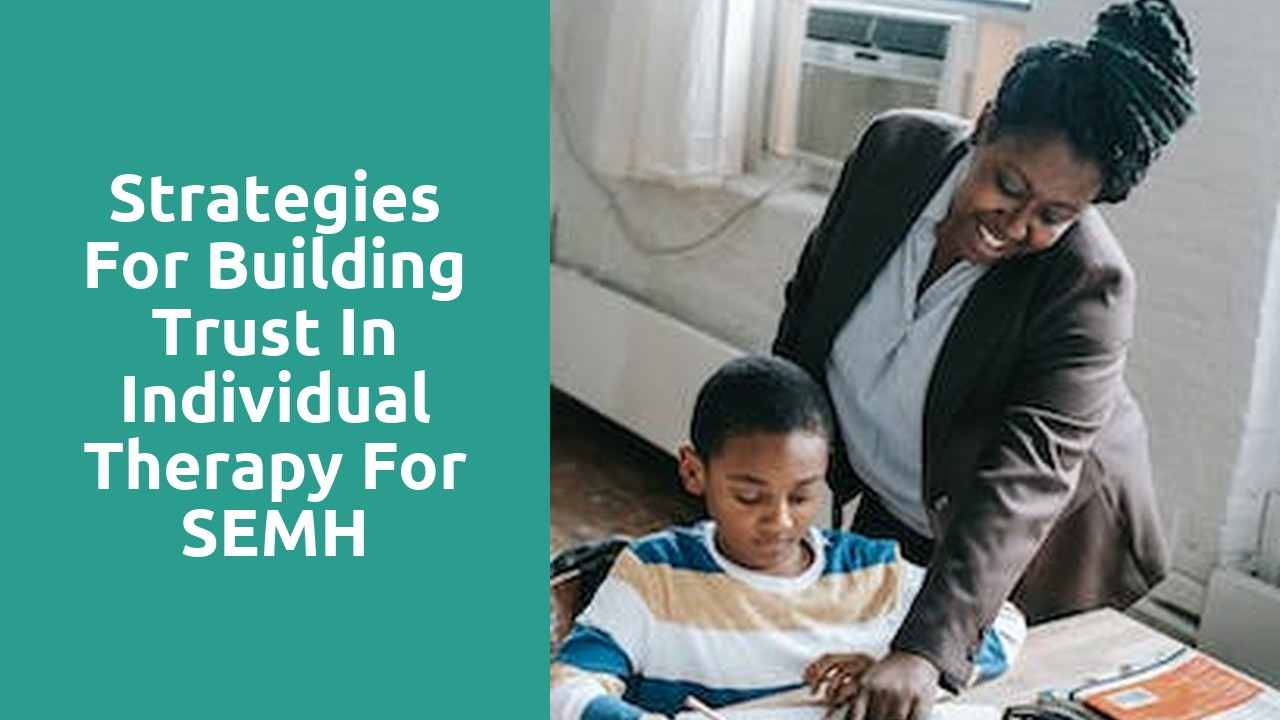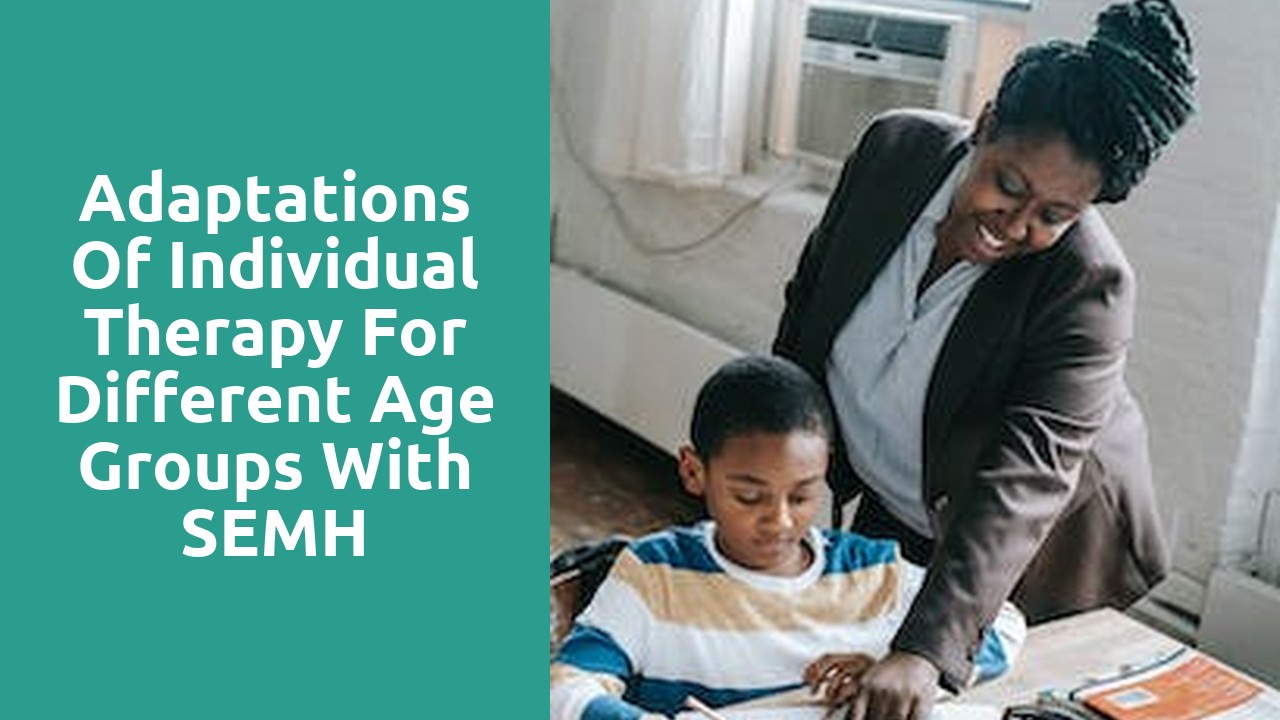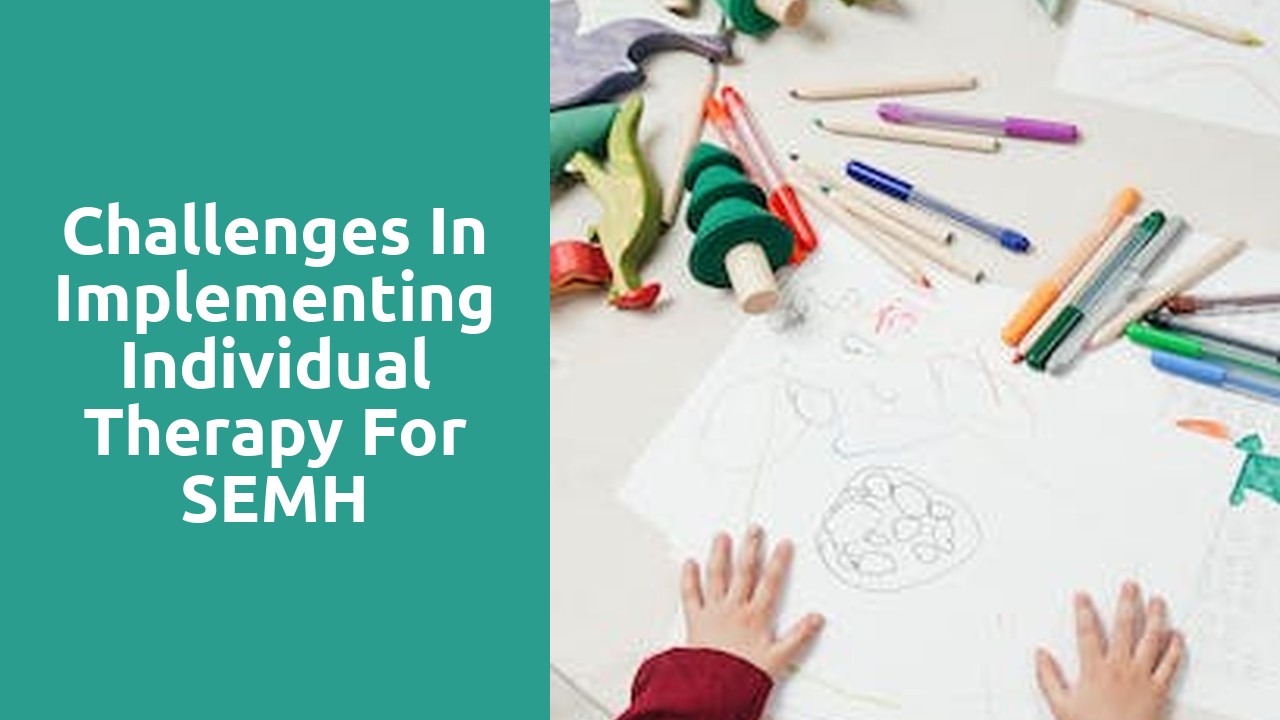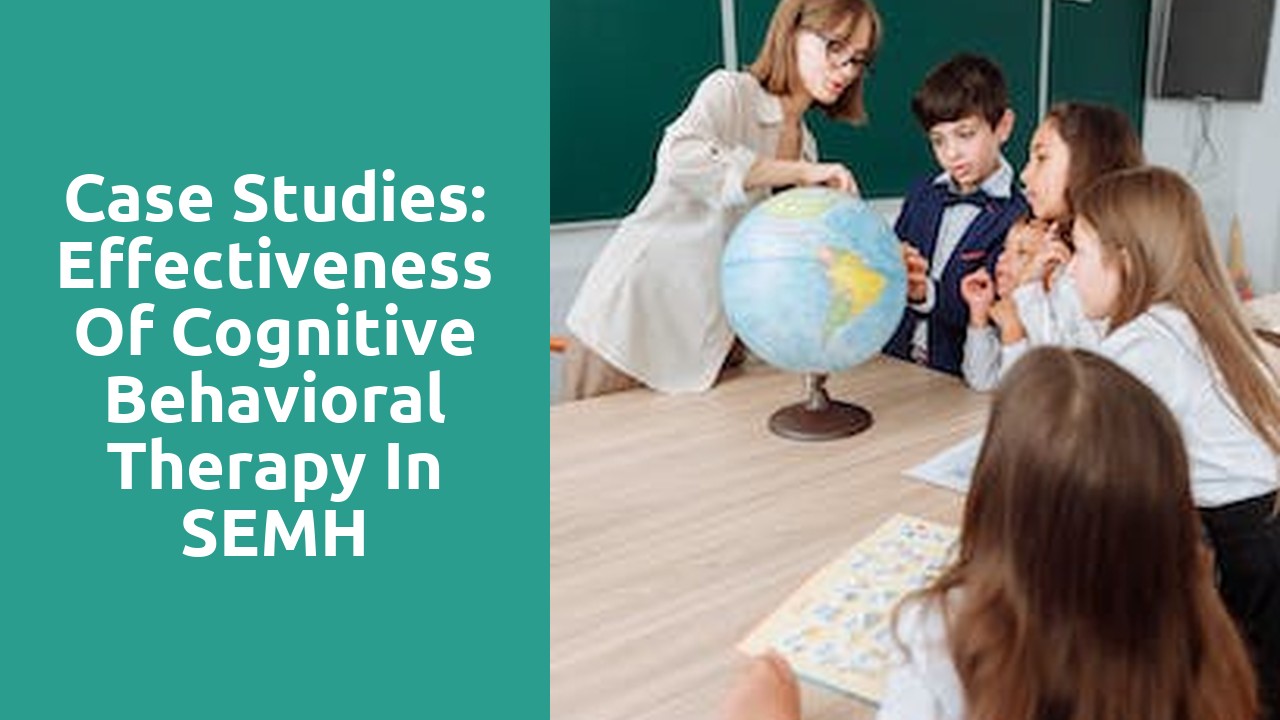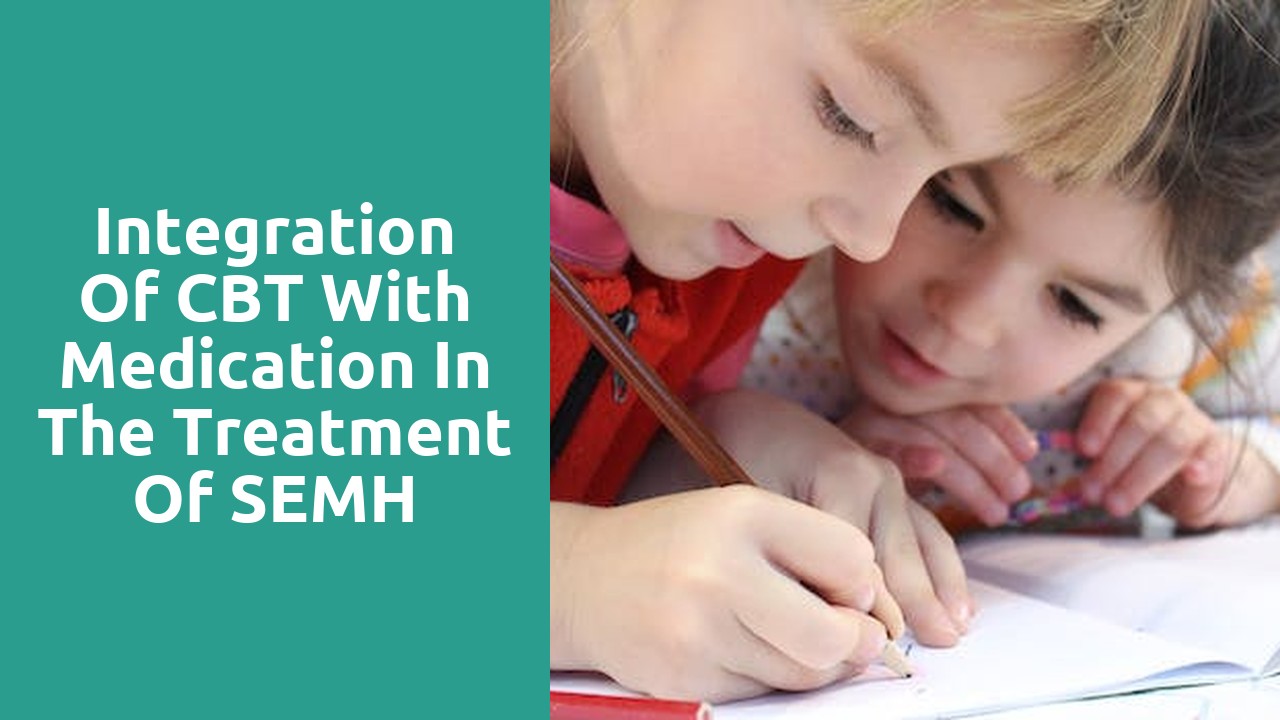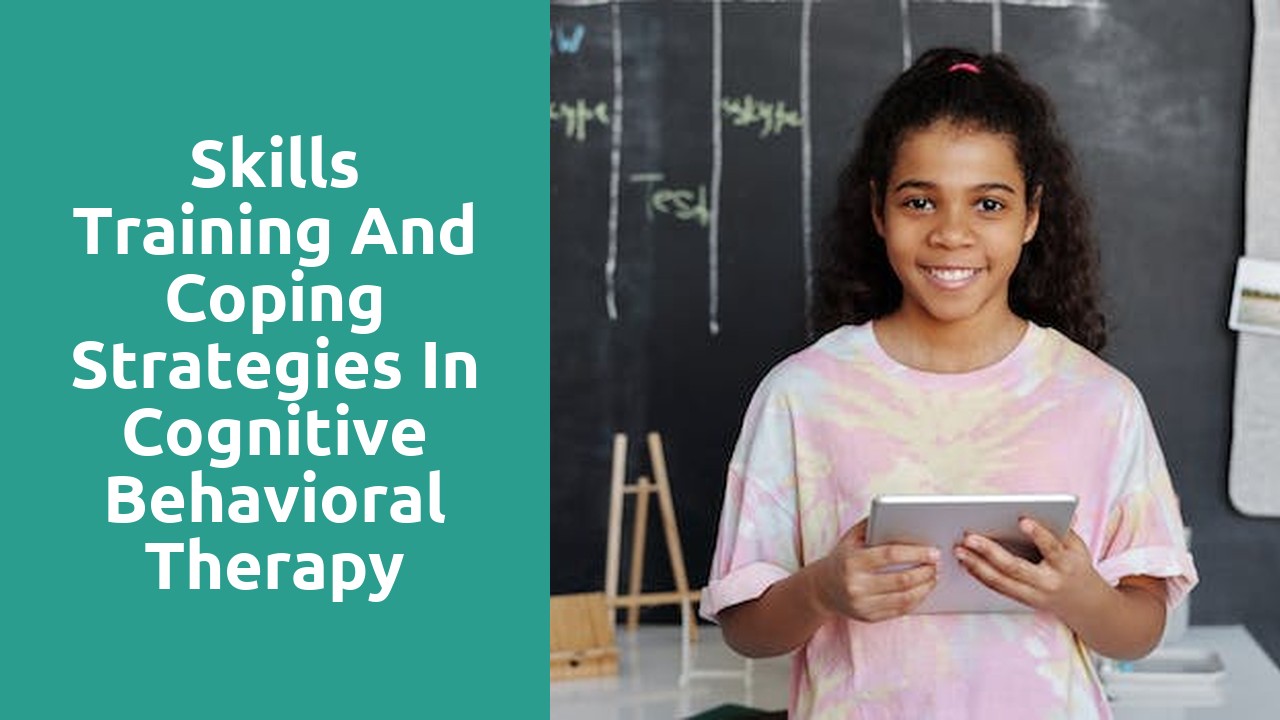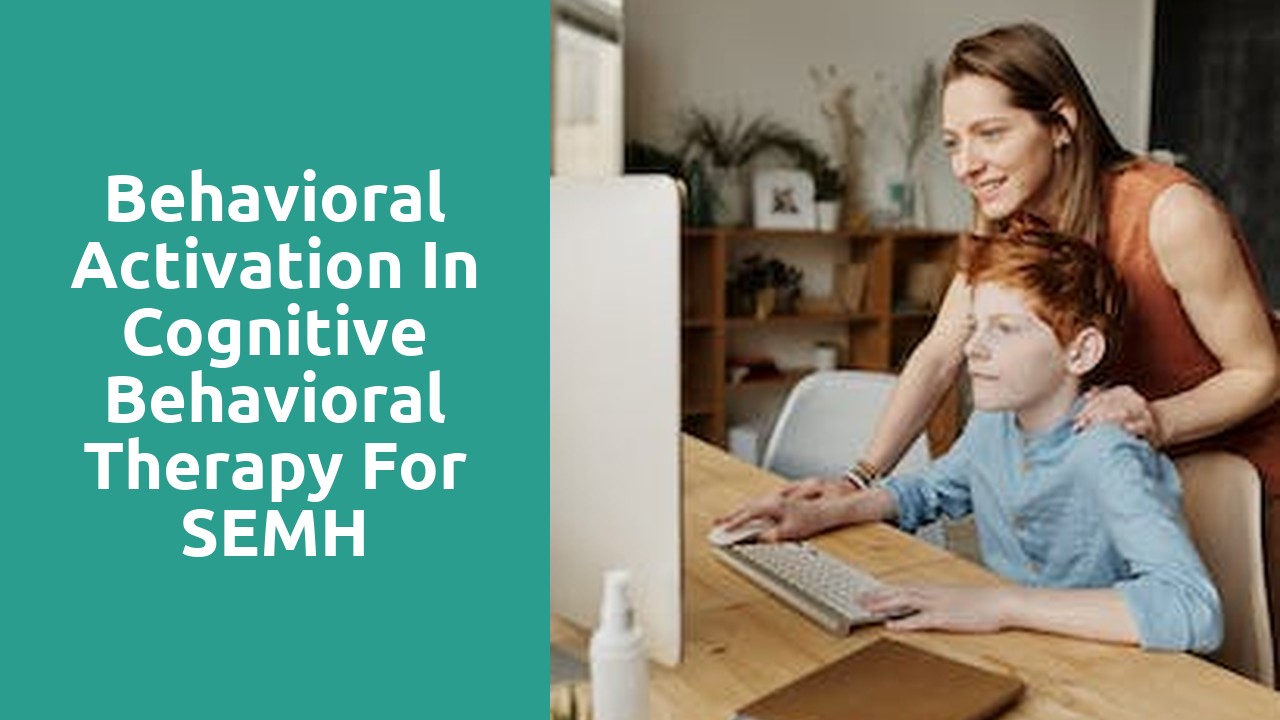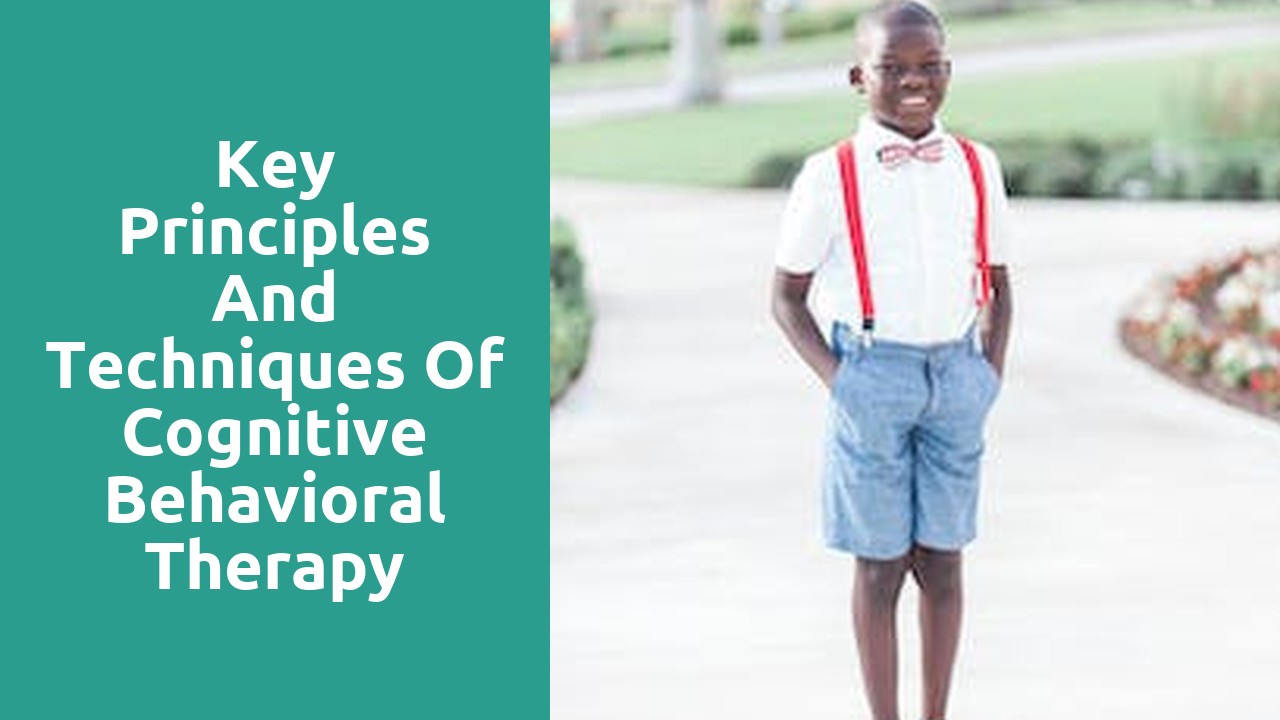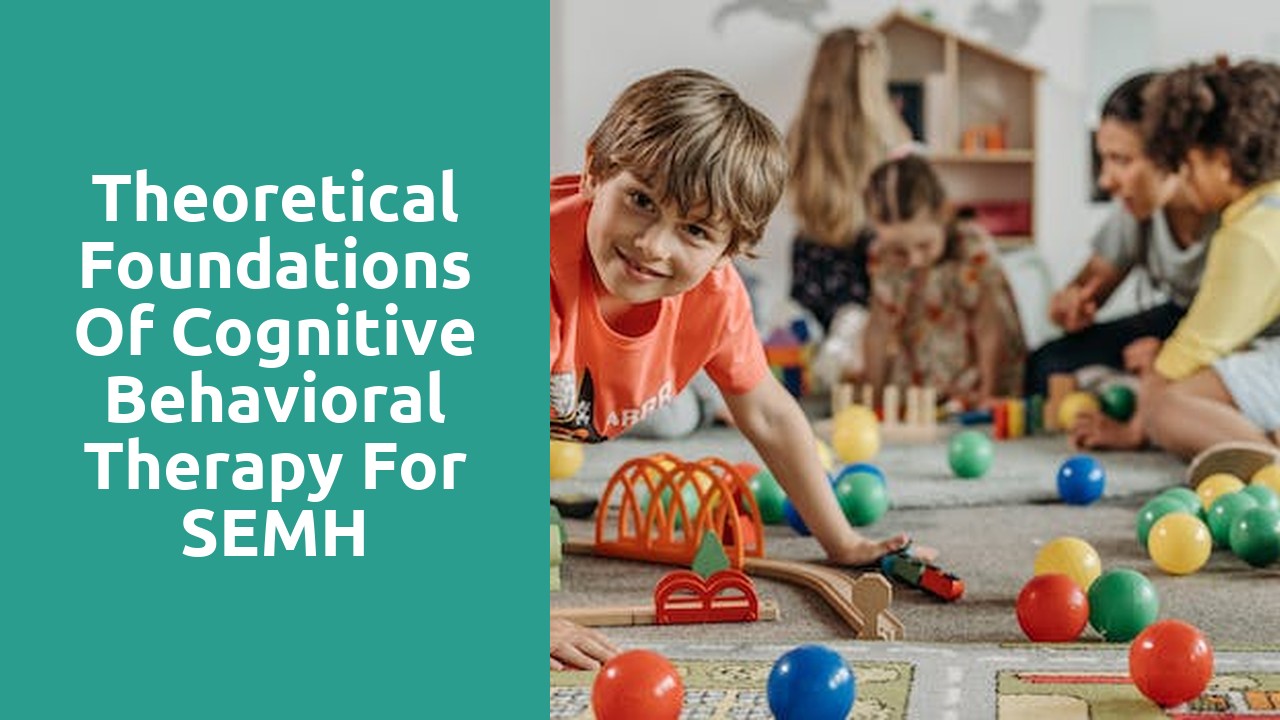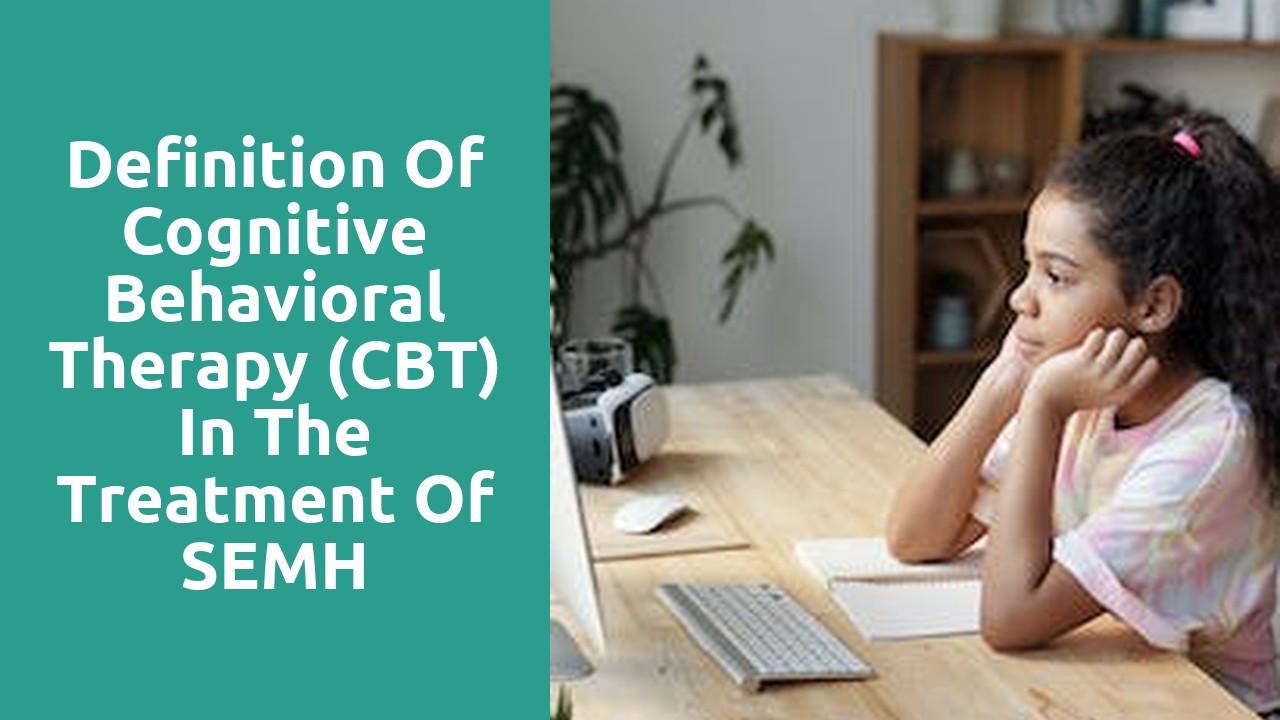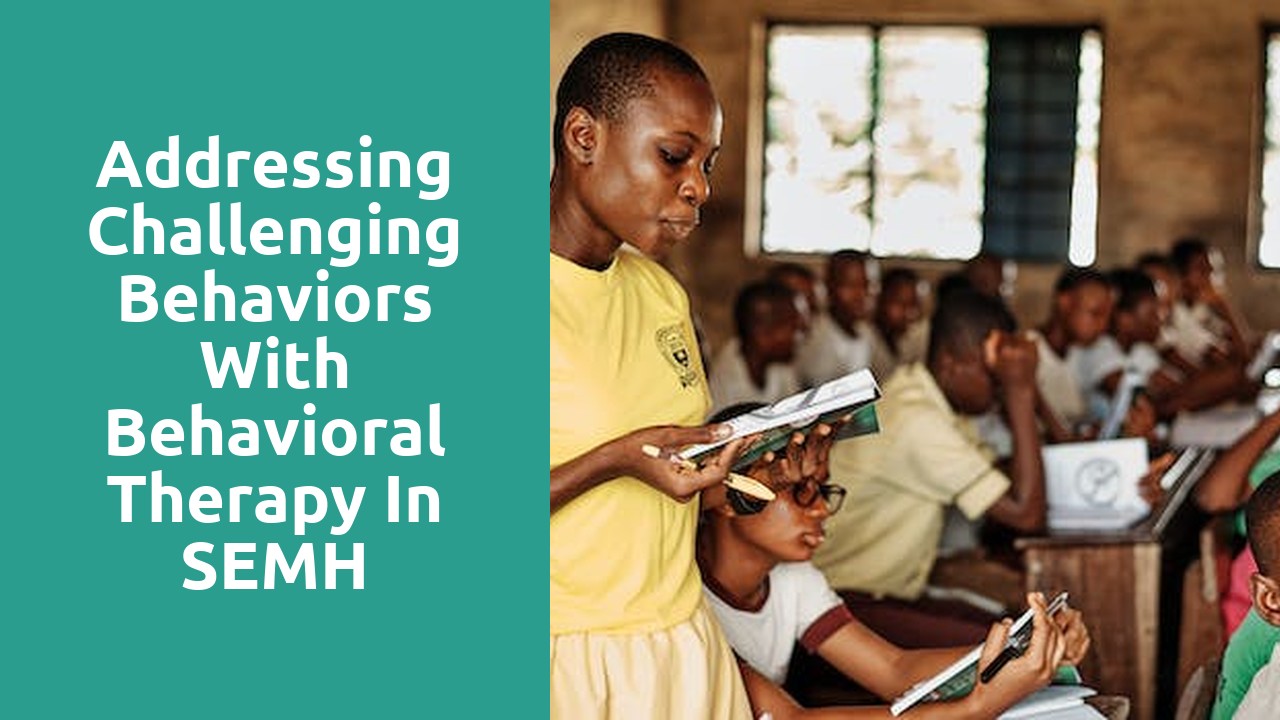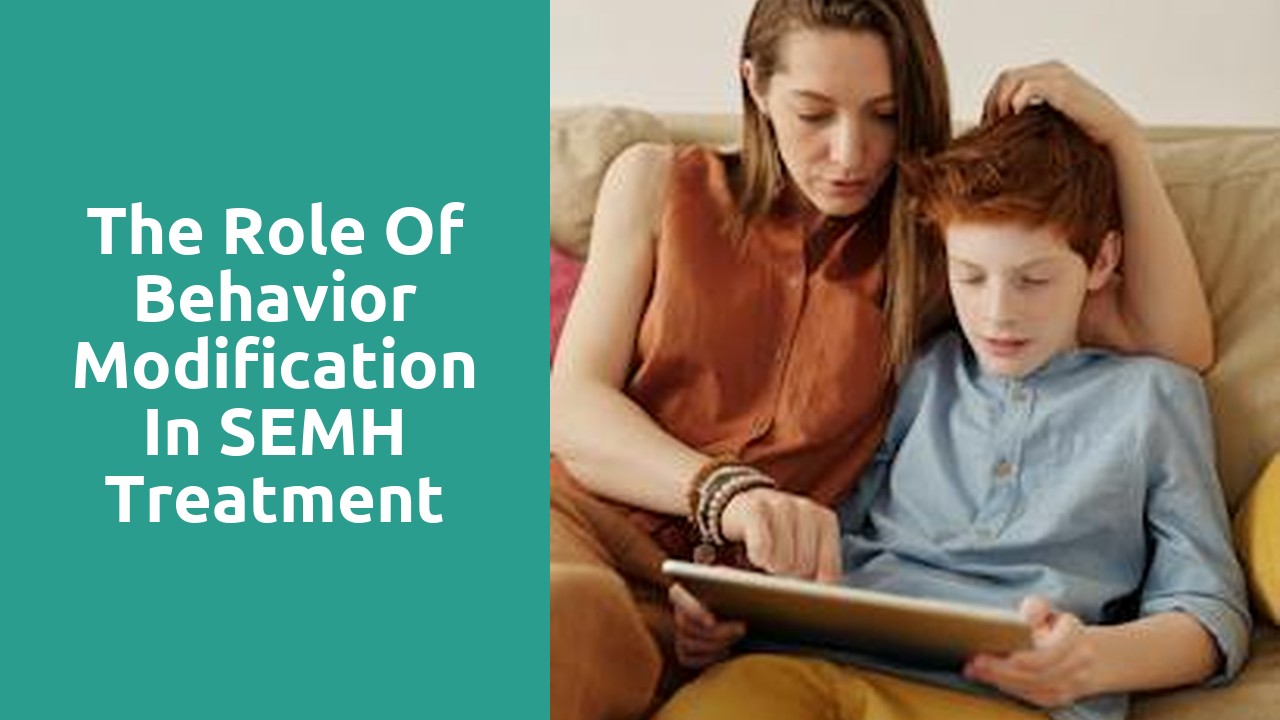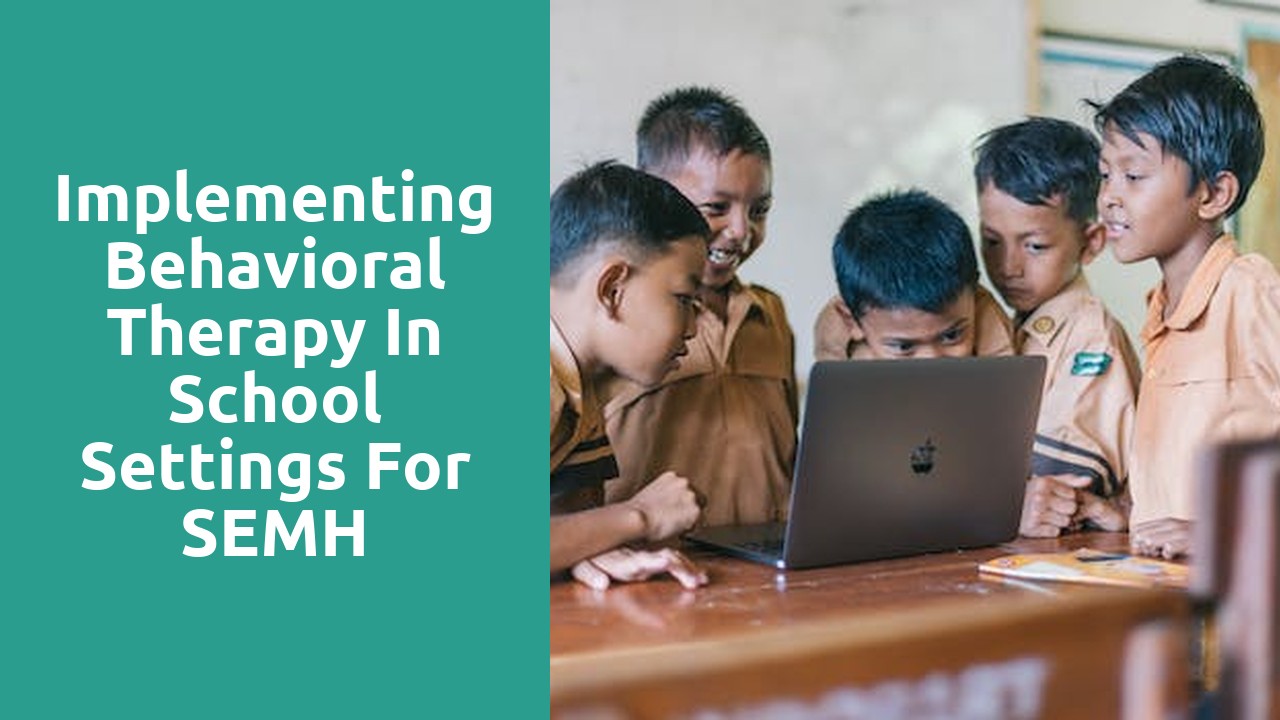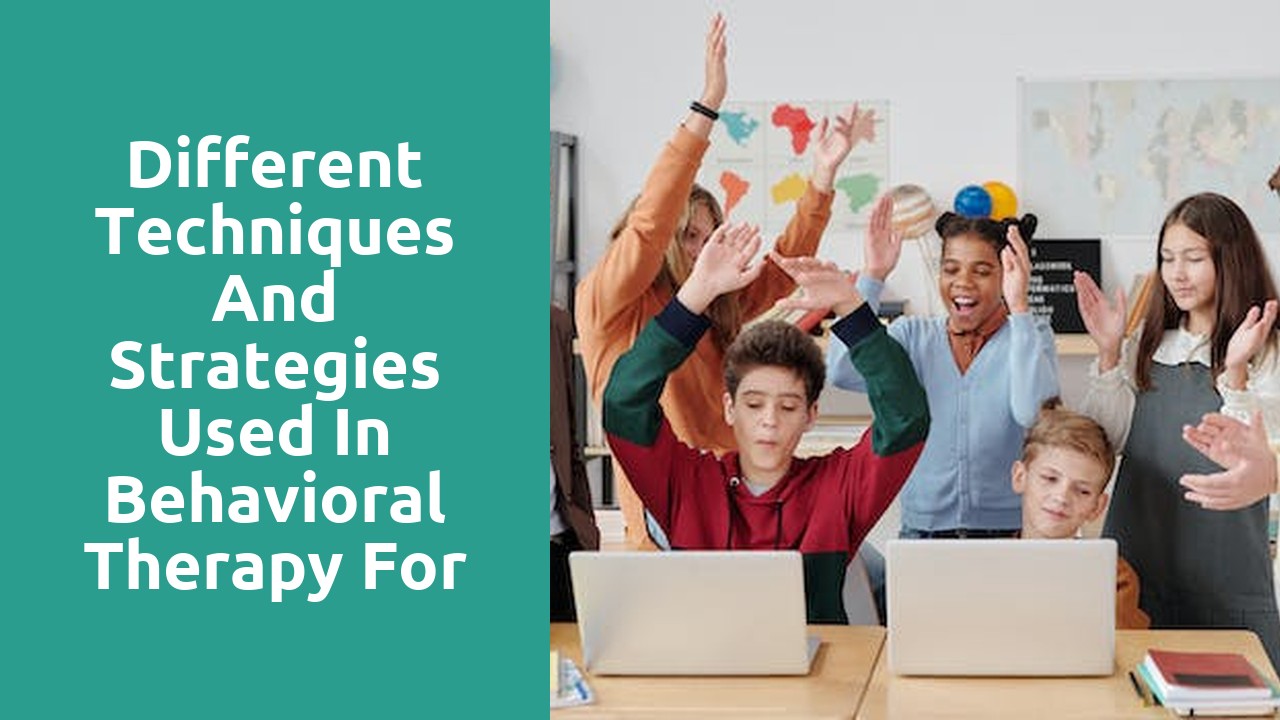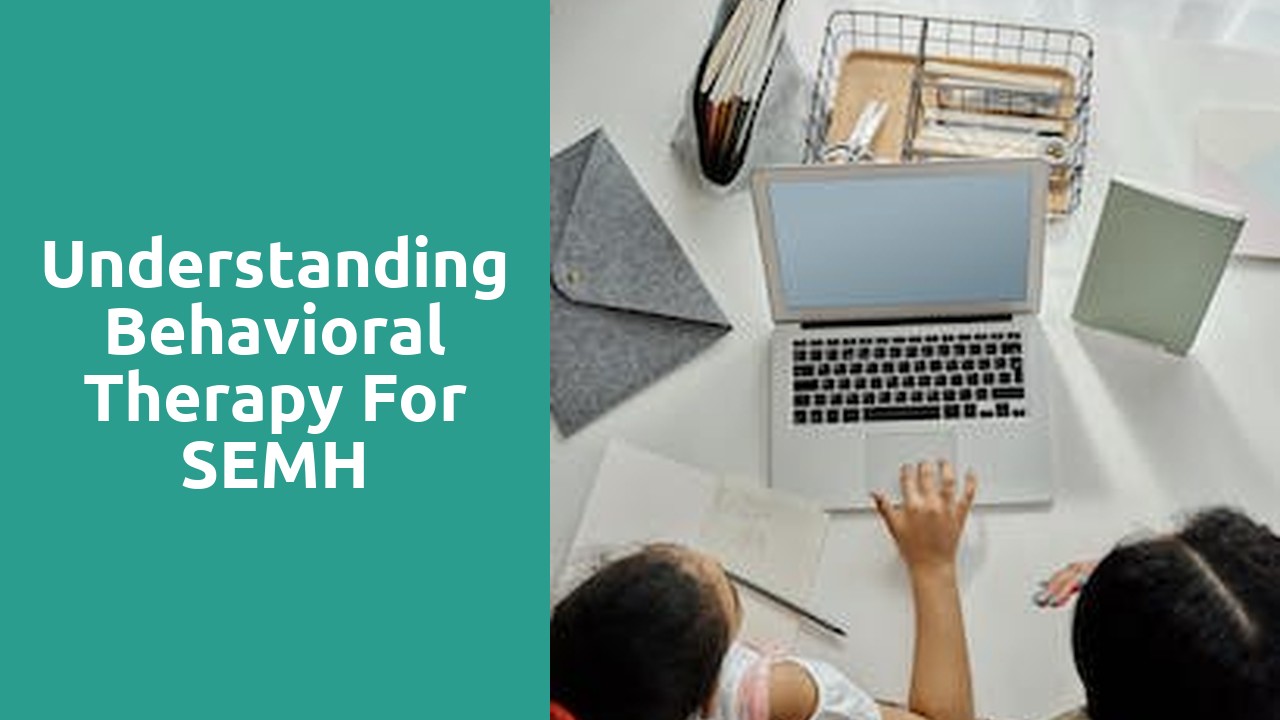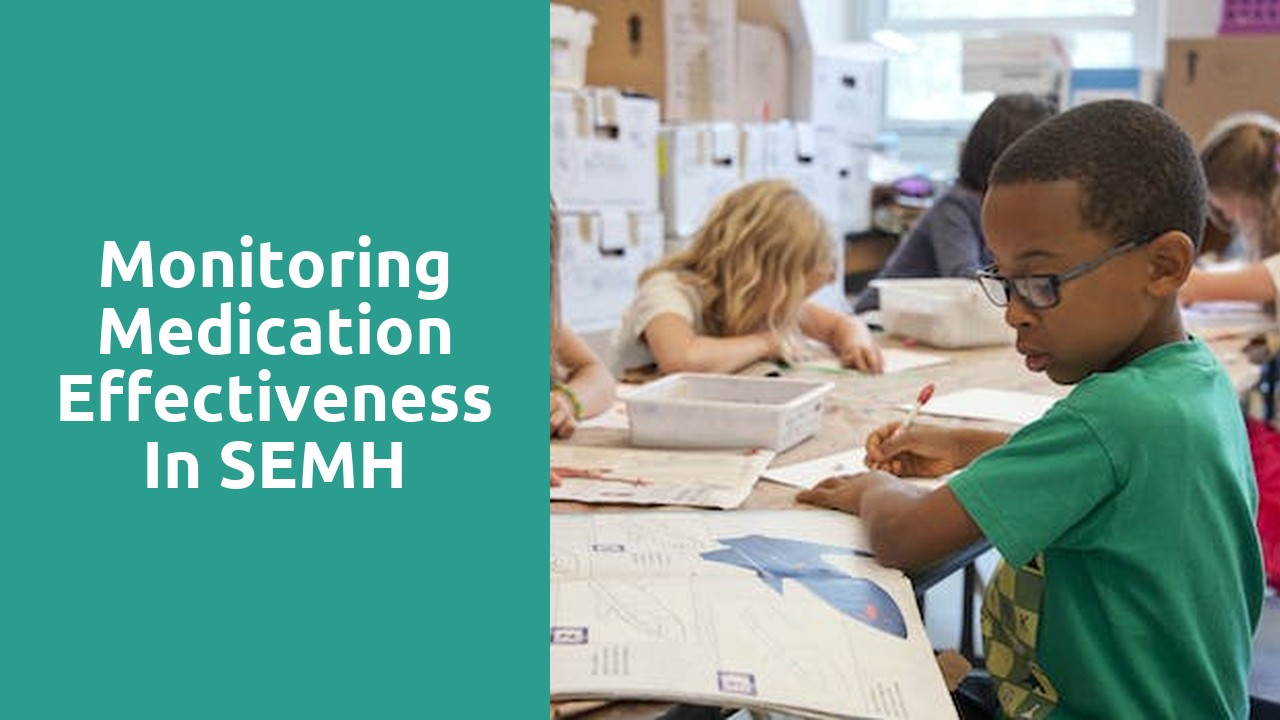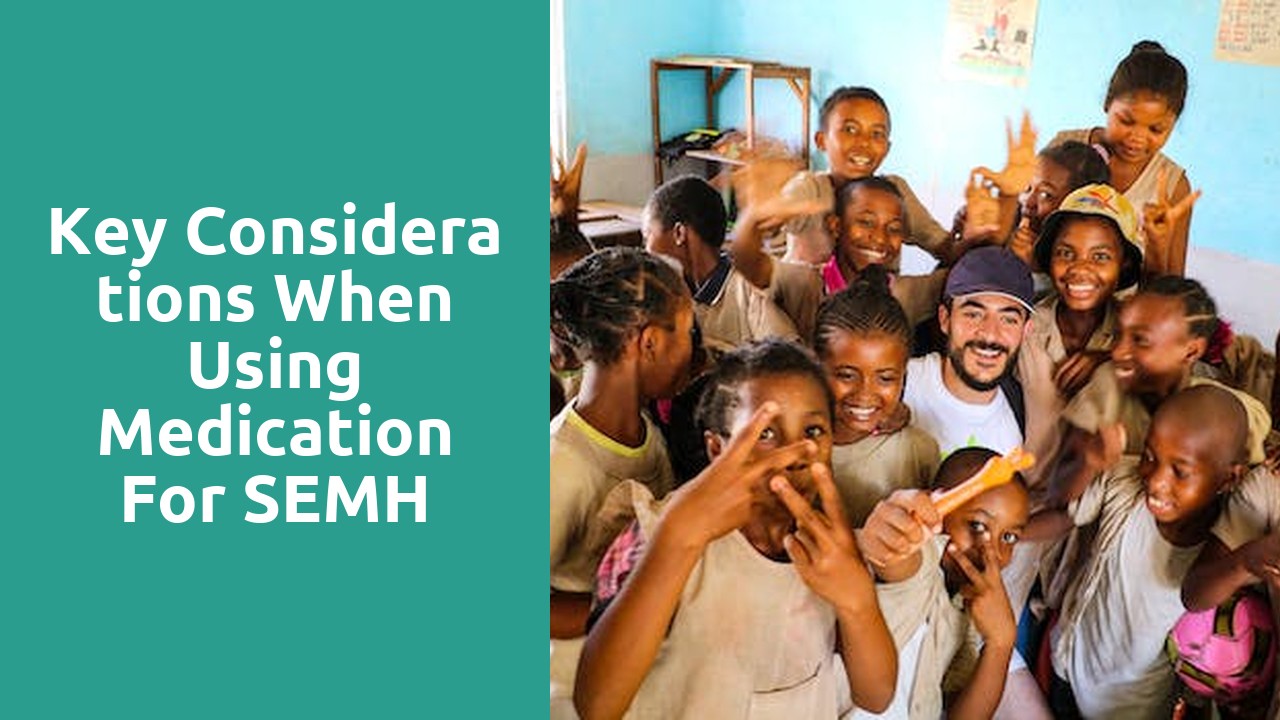SEMH Treatments: An Overview of Effective Strategies and Therapies
Social, emotional, and mental health (SEMH) treatments encompass a wide array of interventions and support strategies designed to aid children and young people experiencing challenges in these areas. The concept of SEMH recognises that difficulties in social and emotional development can significantly impact a young person's ability to learn and thrive within an educational setting. With the rise in awareness of SEMH needs, education professionals, psychologists, and therapists are increasingly seeking ways to address these issues effectively.
A critical component in managing SEMH needs is the accurate identification and assessment of these conditions. This is where tools like the Boxall Profile Online become invaluable. They offer a structured framework for understanding the complexities of a child's social and emotional development. Once the needs are identified, tailored interventions, which may include cognitive behavioural therapy (CBT), talk therapy, or specific behavioural strategies, are implemented. These evidence-based interventions are designed to meet individual needs and are often complemented by the involvement of parents, the provision of specialised training for staff, and fostering an inclusive school culture. Such a comprehensive approach ensures that every aspect of the child's environment is conducive to promoting emotional regulation and well-being, integral to the success of SEMH treatments.
Key Takeaways
- SEMH treatments aim to support the social, emotional, and mental well-being of children and young people.
- Identification and assessment of SEMH needs are critical to tailoring effective interventions.
- Inclusive practices and involvement of the wider community are integral to successful SEMH support.
Understanding SEMH
In addressing Social, Emotional and Mental Health (SEMH) needs, it is crucial to provide a framework that recognises the significant impact on a child’s learning and overall development.
Definition and Key Concepts
SEMH stands for Social, Emotional and Mental Health. It is a term that signifies a range of educational needs where a child struggles with emotional regulation and social interaction. These difficulties can manifest in many ways, from challenges with forming relationships to understanding and managing emotions. Special Educational Needs (SEN) is an umbrella term that includes SEMH, where the focus is on providing support to enhance educational outcomes.
Prevalence and Recognition in Education
The recognition of SEMH within education has increased over the years. Educators understand that SEMH needs must be identified and addressed for a child to achieve their full potential. It is acknowledged that the prevalence of such needs is not negligible; a significant number of students require SEMH support in various educational settings.
The Role of SEMH in Child Development
Developmental theory stresses the importance of social and emotional health in child development. Children with SEMH needs may face barriers to their academic progress and social integration. Addressing these needs is essential to promote holistic development and prepare the child for challenges beyond the classroom.
By focussing on SEMH within the context of education, stakeholders can support children in developing crucial life skills and adapt to the demands of their environment, fostering resilience and personal growth.
Whole School Approach
The Whole School Approach recognises that addressing the social, emotional, and mental health (SEMH) needs of students requires a strategic and cohesive effort that involves all school staff and resources. This comprehensive framework integrates evidence-based practices into the fabric of educational settings, ensuring consistent and proactive support for SEMH across the entire school.
Creating Supportive Environments
A supportive environment is foundational in a Whole School Approach, where every aspect of the school is geared towards promoting SEMH. Key elements include:
- Policies: Implementation of robust SEMH policies that are in line with national guidelines to create a uniform understanding among all staff.
- Resources: Allocation of resources that make SEMH principles accessible. This includes educational tools and materials that foster a supportive atmosphere.
Developing a Values Driven Approach
Values are at the heart of any school's culture, and when these values centre around student wellbeing, they contribute to a positive and supportive SEMH framework. Specific strategies encompass:
- Whole School Values: These are embedded into the school's ethos, promoting a culture where SEMH is prioritised.
- Restorative Approaches: Implementing conflict resolution strategies that repair harm and restore relationships rather than solely focusing on punishment.
Staff Training and Development
For SEMH initiatives to be effective, staff must be well-equipped with the knowledge and skills required to support their students. Training and development are crucial and include:
- Evidence-Based Training: Regular professional development sessions using evidence-based approaches to SEMH.
- Staff Wellbeing: Recognising that the wellbeing of school staff is integral to their ability to support students. This might be addressed through internal policies and provision of wellbeing resources for staff.
By integrating these components, a Whole School Approach can effectively create an environment conducive to the emotional and mental wellbeing of both students and staff.
Identification and Assessment
Identifying and assessing Social, Emotional and Mental Health (SEMH) needs in children and young people is a foundational step in ensuring appropriate interventions and support systems are put in place. Effective screening and the use of robust assessment tools, combined with the engagement of parents and multidisciplinary teams, play a crucial role in developing successful Education and Health Care Plans (EHCPs).
Screening for SEMH Needs
The initial screening process for SEMH needs is vital to early recognition of issues that may affect a child’s behaviour and attention in educational settings. Teachers are often the first to notice indicators of SEMH difficulties, which can manifest in various forms such as challenges with autism or ADHD. Regular observations and initial checklists serve as the preliminary step in screening before a more formal assessment is recommended.
Use of Assessment Tools
Several assessment tools are utilised to understand and support children with SEMH needs. One such instrument is the Boxall Profile®, designed to provide a detailed picture of a child's social and emotional functioning. This tool allows educators to identify specific areas of need and to tailor interventions effectively. Behavioural assessments give objective data that enrich the diagnostic process, helping to pinpoint areas such as difficulty with social interaction or maintaining attention.
Engagement with Parents and Teams
Collaboration with parents and a multidisciplinary team is crucial when addressing SEMH needs. Communication between education professionals and health care providers ensures a comprehensive approach to a child's development and well-being. Parents provide invaluable insights into behaviours that may not be as observable within the classroom context, while multidisciplinary teams contribute specialist knowledge that informs the development of tailored Education and Health Care Plans.
By implementing thorough identification and assessment processes, practitioners can offer the precise support that children and young people with SEMH needs require to achieve their educational potential.
Interventions and Support Strategies
The effectiveness of SEMH interventions hinges on their timely application, appropriateness to the individual's needs, and the incorporation of evidence-based methods.
Early Intervention and Prevention
Early intervention and prevention are pivotal for addressing social, emotional and mental health (SEMH) issues within educational settings. One critical aspect is the universal screening to identify needs at an early stage. Resilience-building programmes may include mindfulness exercises and social skills training, which equip students with the tools to navigate challenging emotions and maintain mental well-being.
- Key Components:
- Universal screening for SEMH concerns
- Resilience-building curricula
Targeted Interventions
When universal strategies are not sufficient, targeted interventions meant for groups or individuals exhibiting signs of SEMH difficulties become necessary. These are tailored to specific problems such as ADHD or autism, applying approaches like social skills groups or behavioural interventions to help students integrate into the educational environment effectively. The rapidly responsive nature of in-school counselling, as part of the support, plays a significant role in servicing those with elevated but non-clinical needs.
- Strategies for Specific Needs:
- ADHD: Behaviour modification plans
- Autism: Structured learning environments and social communication support
Evidence-Based Therapies
For SEMH interventions to have the desired impact, they must be grounded in evidence-based therapies. This substantiation assures that the methods employed are clinically proven to facilitate improvement. Therapies such as Cognitive Behavioural Therapy (CBT) and Dialectical Behavioural Therapy (DBT) are instrumental in this regard, along with creative therapies like art and music therapy which are utilised to help students express and manage their emotions. Counselling services in schools provide a safe space for students to discuss their issues with trained practitioners.
- Therapeutic Interventions:
- Cognitive Behavioural Therapy (CBT): Aims to alter negative thought patterns
- Art and Music Therapy: Offers non-verbal outlets for emotion and stress management
Specialist Interventions
Specialist interventions in social, emotional and mental health (SEMH) are pivotal for individuals with significant and complex needs. These strategies require professional expertise to address specific psychological difficulties such as anxiety, depression, and trauma.
Therapeutic Approaches
Specialist therapeutic approaches for SEMH often involve emotional literacy support and narrative therapy. Emotional literacy support aims to enhance understanding and expression of emotions, equipping individuals to better manage social interactions and personal responses. Narrative therapy allows individuals to recount their experiences, aiding in the processing of traumatic events and fostering a sense of empowerment over their own stories.
- Narrative Therapy
- Focus: Trauma, personal experiences
- Benefits: Empowerment, cognitive processing
- Emotional Literacy Support
- Focus: Understanding and expression of emotions
- Benefits: Improved social skills, emotional regulation
Education-Based Support
In education settings, support for individuals with SEMH needs is often provided by specialised staff such as therapists and counsellors. Schools implement trauma-informed approaches and the neurosequential model to understand and support students at various stages of their emotional and cognitive development. The goal is to provide tailored interventions that cater to individual needs, promoting better outcomes in both academic and social domains.
- Trauma-Informed Approaches
- Focus: Students with trauma
- Implementation: Staff training, supportive school environment
- Neurosequential Model
- Focus: Development stages
- Application: Tailored interventions, holistic support
Multi-disciplinary Services
Multi-disciplinary services involve collaboration between various professionals such as therapists, educational psychologists, and specialists in special educational needs and disability (SEND). They collectively design and deliver support systems like "Circle of Friends", fostering peer support networks for those struggling with issues related to SEMH. These services are crucial for complex cases where a multi-faceted plan is needed to address the various aspects of a person's well-being.
- SEND Specialists
- Role: Design support systems, address specific educational needs
- Collaboration: With therapists, educational psychologists
- Circle of Friends
- Focus: Building peer support networks
- Benefit: Enhanced social inclusion, peer empathy
Parental and Community Involvement
Effective support for children and young people with Social, Emotional and Mental Health (SEMH) needs requires active participation from both parents and communities. Parental involvement, as well as utilisation of community resources, plays a crucial role in addressing SEMH challenges, such as anxiety and trauma. This section explores the facets of such engagement.
Holding Supportive Conversations
Parents facilitating supportive conversations lay the groundwork for positive mental health outcomes. These conversations should be characterised by empathy and validation, fostering an environment where children can express their emotions without fear of judgement. Parents might need training to enhance their communication skills, ensuring they are adept at responding to their child’s emotional states and attachment needs.
Building Partnership with Parents
Building a partnership between parents and professionals is imperative in the treatment and support for SEMH needs. A collaborative approach ensures that parents are engaged and valued in the intervention process. Professionals can support parents to develop strategies that complement therapy, such as creating a consistent home environment that mirrors the support provided in educational or therapeutic settings.
Community Resources and CAMHS
Community resources, including Child and Adolescent Mental Health Services (CAMHS), are essential components of a holistic approach to SEMH. Circle of friends initiatives and community engagement programs are some examples where community resources can support SEMH needs outside of the family unit. CAMHS offers assessment and intervention services, which can be critically important for children experiencing SEMH difficulties. Effective collaboration with such services can result in a more coordinated support network for the child or teenager.
- Community Engagement: Ensures that multiple facets of a child's life are catered to, from school to extracurricular activities.
- Circle of Friends: Helps create a supportive social framework around a child, reducing feelings of isolation.
- CAMHS: Provides professional and specialised services necessary for in-depth support.
Addressing Specific Needs
Interventions for Social, Emotional and Mental Health (SEMH) are most effective when they closely align with the specific needs of the individual, acknowledging that each child may face a unique set of challenges.
Attention to Autism and ADHD
Children with autism and ADHD often experience barriers to learning that need targeted interventions. For autism, strategies might include creating predictable routines and using visual aids to support understanding. Children with autism benefit from a structured environment where expectations are made clear and social cues are explicitly taught.
With ADHD, interventions might focus on sustaining attention and reducing impulsive behaviours. This could involve breaking tasks into manageable chunks, incorporating regular breaks, and using timers to help children understand the passage of time. It’s also helpful to minimise potential distractions in the learning environment.
Managing Behavioural Challenges
Behavioural challenges, such as inappropriate anger responses and difficulties with self-regulation, can lead to isolation and hinder the educational and social development of children with SEMH needs. Managing these challenges requires:
- Individual Behaviour Plans: Tailored plans can identify triggers and outline step-by-step responses to help the child develop coping mechanisms.
- Positive Reinforcement: Regular and consistent positive feedback for appropriate behaviour can reinforce desired actions.
- Conflict Resolution Training: Helping children to articulate their feelings and resolve disagreements can reduce incidents of anger and aggression.
Catering to Sensory Needs
Children with SEMH may have sensory needs that impact their behaviour and ability to engage in the classroom. Catering to these needs often means:
| Sensory Input | Strategies |
|---|
| Auditory | Use of noise-cancelling headphones in noisy environments. |
| Visual | Lowered lighting or the use of tents/dens as personal workspaces. |
| Tactile | Access to sensory toys or fidget tools. |
| Proprioceptive | Incorporation of movement breaks or heavy work exercises. |
It’s essential that these sensory strategies are integrated seamlessly into the classroom routine to avoid singling out children, thereby reducing the stigma and supporting inclusion.
Covid-19 and SEMH
The intersection of Covid-19 and Social, Emotional, and Mental Health (SEMH) treatments presents distinct challenges and opportunities in the realm of mental healthcare. The pandemic has had a profound impact on individuals' emotional wellbeing and necessitated the adaptation of SEMH practices.
Impact on Mental Health
The onset of Covid-19 brought about significant social isolation, leading to a notable decline in mental health among a wide demographic. Individuals experiencing the loss of social contact have reported increased anxiety and depression. The social distancing measures, while crucial for physical health safety, have inadvertently escalated stress levels and eroded resilience, particularly among those previously reliant on strong support networks.
Post-pandemic Recovery Strategies
Recovery strategies have placed a strong emphasis on bolstering emotional resilience and fostering reconnection within communities. Health services have implemented a variety of recovery programs aimed at aiding individuals in adapting to the post-pandemic climate. These include:
- Community-based interventions: Initiatives to reduce isolation and build support networks.
- Digital health resources: Online therapy and support groups have become more prevalent, providing continued access to SEMH services.
Adaptations in SEMH Practice
Adaptations within SEMH practice have become essential to address the diverse impacts of the pandemic. Practitioners have shifted towards more flexible and accessible modes of delivery, such as:
- Teletherapy: Utilisation of digital platforms for therapy sessions.
- Expanded services: Introduction of Covid-19-specific support measures and resources.
These adaptations aim to sustain and improve emotional wellbeing during a period of unparalleled change and challenge.
Professional Development and Resources
Professional development in the context of Social, Emotional, and Mental Health (SEMH) is pivotal for educators and practitioners to enhance their capabilities and to ensure that they utilise the most suitable resources and tools. By doing so, they can support the diverse needs of children more effectively.
Continuing Professional Education
Continuing professional education is crucial for those involved in SEMH to remain informed about the latest strategies and interventions. For instance, SEBDA offers a Postgraduate Diploma in SEMH Difficulties in partnership with Oxford Brookes University, which combines theoretical knowledge with practical application. Training courses such as these enable teachers and practitioners to integrate emerging research and evidence-based practices into their daily work.
Utilising SEMH Tools and Resources
An array of tools and resources are available to support children with SEMH needs. The Child Therapy Service, for example, recommends physical activities like yoga as a method to alleviate stress hormones in a healthy way and highlights the importance of grounding exercises post-activity to regulate the nervous system. Schools may also adopt various SEMH interventions, from group activities to individual sessions, which may sometimes require specific training for effective implementation.
Research and Evidence-Based Practice
Research underlines the significance of evidence-based practice in improving SEMH outcomes. A robust body of research, as indicated by Nasen, emphasises the impact of SEMH on all aspects of a child’s life, stressing the importance of inclusion in the educational system. Educators and practitioners should stay abreast with such research to inform their strategies and interventions, fostering an inclusive environment that caters to the mental wellbeing of all learners, particularly those with SEND or learning differences.
Promoting Emotional Regulation
Emotional regulation is crucial for individuals with Social, Emotional and Mental Health (SEMH) needs, impacting their daily functioning and long-term well-being. This section explores essential concepts around emotional regulation, effective strategies for instruction, and approaches to manage crises and de-escalation.
Understanding Emotional Regulation
Emotional regulation involves the ability to manage and respond to an emotional experience in a socially acceptable and flexible manner. For individuals with SEMH challenges, difficulties in emotional regulation can significantly affect their interpersonal relationships, self-esteem, and overall quality of life. A foundation for supporting emotional regulation is through activities that build self-esteem, such as self-awareness exercises and self-esteem activity tools.
Strategies for Teaching Regulation
Educators and caregivers can employ specific strategies to facilitate emotional regulation among those with SEMH needs:
- Modelling Behaviour: Demonstrating appropriate emotional responses in different situations.
- Language Development: Encouraging expressive language can help individuals articulate their emotions.
- Environment: Creating a safe and predictable environment that enables students to feel secure.
- Resources: Utilising recommended SEMH books that provide guidance and insight into emotional management.
In alignment with these strategies, the following 10 SEMH Tips can be integrated into daily routines:
- Validate feelings before trying to rationalise them.
- Encourage the identification of emotions through direct instruction and tools.
- Foster problem-solving skills with role-play scenarios.
- Implement mindfulness practices to enhance self-awareness.
- Use visual aids to help recognise and regulate emotions.
- Establish clear and consistent behavioural expectations.
- Teach coping strategies for managing stress and anxiety.
- Introduce relaxation techniques such as deep breathing exercises.
- Promote physical activities that can help mitigate emotional intensity.
- Encourage reflective practices for ongoing emotional growth.
Managing Crisis and De-escalation
Crisis situations require immediate and sensitive interventions to de-escalate potential emotional outbursts. Key points to consider include:
- Immediate Assessment: Quickly identify the level of emotional arousal and potential triggers.
- Calm Environment: Ensure the environment is conducive to calming down, removing any immediate stressors.
- Communication: Use clear and calm verbal prompts to guide individuals through the de-escalation process.
- Safety: Maintain the safety of all involved, keeping a safe distance and minimising physical intervention.
Professionals working in SEMH jobs should be trained in crisis management techniques and know how to access relevant weblinks for additional resources. Parents can also play an integral role by using parent tools advocated by resources like 'about SEMH.co.uk' for strategies that support emotional regulation at home.
Frequently Asked Questions
Addressing Social Emotional and Mental Health (SEMH) needs in educational settings is crucial. This section answers some common queries about evidence-based interventions and support strategies.
What evidence-based interventions are effective for addressing SEMH needs?
Evidence-based interventions for SEMH include cognitive behavioural therapy (CBT), mindfulness practices, and social skills training. These approaches have been shown to improve social, emotional, and mental health outcomes for young people.
How can parents and educators support children with SEMH challenges?
Parents and educators can support children with SEMH challenges by creating a stable and supportive environment, encouraging positive social interactions, and promoting self-awareness and self-regulation skills through targeted activities and discussions.
Which strategies are most successful in overcoming barriers to learning for those with SEMH issues?
Successful strategies for overcoming learning barriers include individualised learning plans, a focus on building positive relationships, and the integration of mental health support within the educational framework.
What approaches are used by professionals to diagnose SEMH in individuals?
Professionals use a variety of approaches to diagnose SEMH, including behavioural assessments, psychological evaluations, and observing interactions in different settings to understand the individual's needs accurately.
Can you list some common activities designed to aid students with SEMH?
Activities designed to aid students with SEMH include role-playing scenarios to teach coping strategies, journaling to express emotions, and guided peer group discussions to develop empathy and social understanding.
In what ways do SEMH needs manifest in classroom settings?
SEMH needs in the classroom can manifest as challenging behaviours, withdrawal or social isolation, difficulties in concentrating, or inconsistent academic performance, indicating a need for support and intervention.

